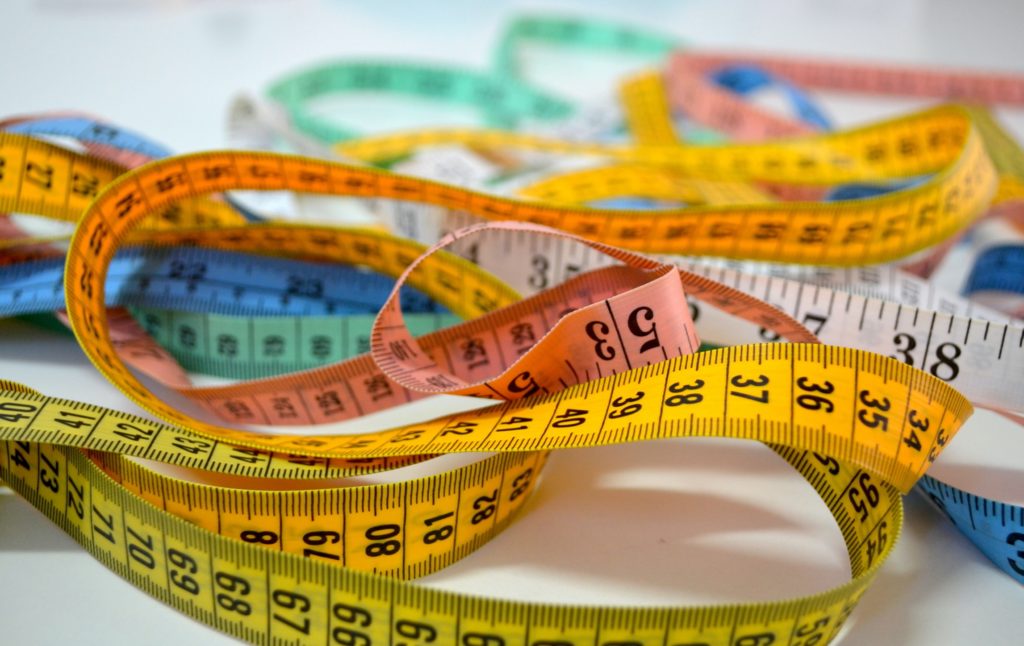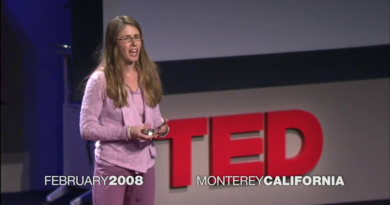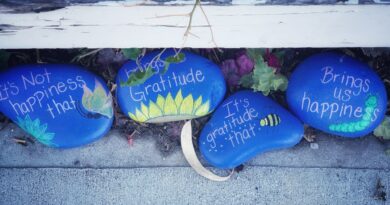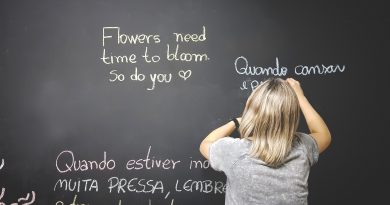Neste vídeo, com duração de 9m15s, o poliglota Luca Lampariello explica um conceito muito importante: como avaliar o seu progresso no aprendizado de idiomas. Dispor de um sistema para avaliar o progresso no aprendizado é de fundamental importância. Saber que avançamos, mesmo que apenas um pouco, nos motiva a prosseguir, pois o aprendizado de idiomas se dá a longo prazo e, no longo prazo, pequenos progressos diários representam grandes avanços.
Veja também as recomendações apresentadas no vídeo por Luca Lampariello:
- Tracking Language Learning Progress: My Top 4 Methods
- Método ASSIMIL para aprendizado de idiomas
- Método “Teach Yourself”
- Peak – secrets from the new science of expertise
| Audio | |
|---|---|
Normal | Slow |
| English Transcript | Tradução |
| If you've been learning a language for some time, do you happen to ask yourself questions such as what, level am I at? | Se você está aprendendo um idioma há algum tempo, você se faz perguntas como, em que nível estou? |
| Am I actually making progress? | Estou realmente progredindo? |
| When am I gonna reach the next level? | Quando chegarei ao próximo nível? |
| Am I improving my grammar, pronunciation or fluency in that target language? | Estou melhorando minha gramática, pronúncia ou fluência nesse idioma que quero aprender? |
| Hi, my name is Luca from LucaLampariello.com, and today we're going to talk about how to measure progress when learning a foreign language. | Olá, meu nome é Luca, do LucaLampariello.com, e hoje vamos falar sobre como medir o progresso ao aprender um idioma estrangeiro. |
| There is really nothing wrong with asking yourself where you stand and where you're going. | Não há realmente nada de errado em se perguntar onde você está e para onde está indo. |
| I did that all the time. | Eu fazia isso o tempo todo. |
| Back in the day, when I was at school, when I was fifteen, I can remember as clear as day that I was jotting down all my language goals and I was fantasizing about learning tons of languages, and I was writing down the level at which I thought I was and where I wanted to go. | Algum tempo atrás, quando eu estava na escola, quando tinha quinze anos, lembro-me claramente como anotava todos os meus objetivos linguísticos e estava fantasiando sobre o aprendizado de vários idiomas, e anotava o nível em que eu pensava que estava e para onde queria ir. |
| With time and experience, I've just realized that while setting up goals is important, the most important and efficient way to tackle how to measure foreign languages is actually to set up a system which will allow you to learn in the long term and that is developing of the right habits. | Com o tempo e a experiência, acabei por perceber que, embora seja importante estabelecer metas, a maneira mais importante e eficiente de lidar com a avaliação do aprendizado de idiomas estrangeiros é, na verdade, estabelecer um sistema que permita que você aprenda a longo prazo e que está desenvolvendo os hábitos certos. |
| How do I build the system? | Como eu construo o sistema? |
| The people who follow my blog have noticed that I've recently published some logbooks where I keep meticulously track of my learning process. | As pessoas que seguem meu blog perceberam que recentemente publiquei alguns diários de acompanhamento, onde registro meticulosamente o meu processo de aprendizado. |
| I think that having a logbook is a great idea: you can keep track of your progress but how do you measure progress? | Eu acho que ter um diário de bordo é uma ótima idéia: você pode acompanhar o seu progresso, mas como você mede o progresso? |
| Well, one thing that I've recently added - and I think it's making a difference - is actually to add some self-reflection exercises. | Bem, uma coisa que eu adicionei recentemente - e acho que está fazendo a diferença - é adicionar alguns exercícios de auto-reflexão. |
| After writing what I did, and how long it took me, I normally spend two or three minutes - even 10 minutes when it's necessary jotting down the things I did and asking myself whether the things I'm doing are actually good for me and how I can refine them. | Depois de escrever o que fiz e quanto tempo me levou, normalmente passo dois ou três minutos - até 10 minutos, anotando as coisas que fiz e me perguntando se as coisas que estou fazendo são realmente boas para mim e como eu posso refiná-los. |
| In fact, the most important goal is not only to keep track of my progress but actually to refine the system through which I am actually learning, so I ask things such as "am I using the right resource?" | De fato, o objetivo mais importante não é apenas acompanhar o meu progresso, mas refinar o sistema pelo qual estou aprendendo, por isso faço perguntas como "estou usando o recurso certo?" |
| "Is this resource nice and good and comprehensible and intelligible and interesting for me at this level?" | "Esse recurso é bom e legal, compreensível, inteligível e interessante para mim nesse nível?" |
| "What else can I add?" | "O que mais posso adicionar?" |
| "How can I organize my time?" | "Como posso organizar meu tempo?" |
| And these bits and pieces of information are actually adding up and they're helping me refine the system better and better. | Essas informações estão realmente agregando e me ajudando a refinar o sistema cada vez mais. |
| Refining the system means to be able to learn in the long term - language learning is always and always will be a marathon and if you want to be successful, the most important thing you want to do is actually stick to it over the long haul. | Refinar o sistema significa ser capaz de aprender a longo prazo - o aprendizado de um idioma é e sempre será uma maratona e, se você quiser ter sucesso, a coisa mais importante que você pode fazer é seguir o seu sistema a longo prazo. |
| And with time I've developed a system which allows me to learn not only one language but two or even three at the same time. | Com o tempo desenvolvi um sistema que me permite aprender não apenas um idioma, mas dois ou até três ao mesmo tempo. |
| In language learning, there are things you can more or less measure, for example the amount of words that you know you can save them you can look back at them and say okay this is more or less the list of words that I know. | No aprendizado de idiomas, há coisas que você pode medir mais ou menos, por exemplo, a quantidade de palavras que você pode salvar. Você pode olhar para elas e dizer que está bem, essa é mais ou menos a lista de palavras que conheço. |
| But unfortunately, language learning is not just a corpus of knowledge, it's also a skill that you develop, and it entails a number of subskills in and of itself and within itself, for example, being able to speak, being able to write, being able to read, and so on and so forth. | Mas, infelizmente, o aprendizado de idiomas não é apenas um corpo de conhecimento, é também uma habilidade que você desenvolve, e envolve várias habilidades, por exemplo, ser capaz de falar, ser capaz de escrever, ser capaz de ler, e assim por diante. |
| And unfortunately it is much more difficult to not only to keep track of this but also to measure whether you're actually making progress or not. | E, infelizmente, é muito mais difícil não apenas acompanhar isso, mas também avaliar se você está realmente progredindo ou não. |
| In his popular book "Peak - secrets from the new science of expertise", the author Anders Ericsson makes the case that experts in any field actually operate within a consistent framework that they built and this framework is based upon consistent mental representations that these experts develop with time. | Em seu livro popular "Peak - secrets from the new science of Expertise", o autor Anders Ericsson defende que especialistas em qualquer área operam dentro de uma estrutura consistente que construíram e essa estrutura é baseada em representações mentais consistentes que esses especialistas desenvolvem com o tempo. |
| It's a really really interesting book and I recommend you read it. | É um livro realmente muito interessante e eu recomendo que você o leia. |
| So how do I operate within the language learning framework? | Então, como eu opero dentro da estrutura de aprendizado de idiomas? |
| What are my mental representations? | Quais são minhas representações mentais? |
| I divide language learning mainly in three areas: beginner, intermediate, and advanced. | Divido o aprendizado de idiomas principalmente em três áreas: iniciante, intermediário e avançado. |
| Actually, I define my level according to the resources that I use - the what and how I use them - the how. | Na verdade, defino meu nível de acordo com os recursos que uso - o quê e como os uso - o como. |
| Let me give you an example: if I'm at the very early stage of language learning, that is, I'm a beginner, I always use a book like ASSIMIL or "Teach yourself" or another resource, and I apply my bidirectional method to it, so I define the what, I know the how, and for me I am at this beginner stage. | Deixe-me dar um exemplo: se estou no estágio inicial do aprendizado de idiomas, ou seja, sou iniciante, sempre uso um livro como ASSIMIL ou "Teach yourself" ou outro recurso, e aplico meu método bidirecional, então eu defino o quê, sei, o como e, para mim, estou nesse estágio iniciante. |
| So after I finish ASSIMIL, I do not ask myself whether I have reached an intermediate level or not - for me it's actually automatic - and once I get into the intermediate realm, intermediate ground, whatever you want to call it, I just changed the what - that is the resource or resources - and I also change the how. | Então, depois de terminar o ASSIMIL, não me pergunto se atingi um nível intermediário ou não - para mim é realmente automático - e quando chego ao patamar intermediário, ao terreno intermediário, como você quiser chamar, mudei o "o quê" - esse é o recurso ou recursos - e eu também mudo o "como". |
| A lot of people think that my bi-directional translation is a complete method to learn a language, but the reality is that mine is a combination of methods which evolve with time. | Muitas pessoas pensam que minha tradução bidirecional é um método completo para aprender um idioma, mas a realidade é que é uma combinação de métodos que evoluem com o tempo. |
| So, what do I do when I have reached an intermediate level? | Então, o que faço ao atingir o nível intermediário? |
| Well, again, I changed the what and I change the how - most often than not I find some resources on the internet, podcasts with scripts and audio that I can keep working on but I do not use my bi-directional translation anymore I do more intensive listening and reading and jotting down vocabulary and also I start talking with some tutors online or with some friends. | Bem, novamente, mudei o "quê" e mudo o "como" - na maioria das vezes encontro alguns recursos na internet, podcasts com scripts e áudio nos quais posso continuar trabalhando, mas não uso mais minha tradução bidirecional, pratico audição e a leitura intensivamente, e tomo notas de vocabulário a também começo a conversar com alguns tutores online ou com alguns amigos. |
| And in the advanced phase, I do something different, such as starting watching movies, or starting absorbing more authentic content. | E na fase avançada, faço algo diferente, como começar a assistir filmes ou absorver conteúdo mais autêntico. |
| The key point here is that you should not ask yourself whether you are beginner, intermediate or advanced, I think that it's much more important to focus on building a consistent system that works for you, a kind of mental framework, where you constantly know where you are. | O ponto chave aqui é que você não deve se perguntar se é iniciante, intermediário ou avançado; acho que é muito mais importante se concentrar na construção de um sistema consistente que funcione para você, uma espécie de estrutura mental, onde você sempre sabe onde está. |
| And if you do that for one language then you can simply replicate it for any other language, it really helps you not only figuring out where you are but also motivates you in the long run because you know where you're going. | E se você fizer isso para um idioma, poderá replicá-lo para qualquer outro idioma, isso realmente ajudará você, não apenas a descobrir onde está, mas também a motivá-lo a longo prazo, porque sabe para onde está indo. |
| Learning a language is a little bit like climbing a mountain or setting upon a very long journey. | Aprender um idioma é um pouco como escalar uma montanha ou iniciar uma jornada muito longa. |
| It takes time, it's an endless journey, actually, because we never stop learning. | Leva tempo, é uma jornada sem fim, na verdade, porque nunca paramos de aprender. |
| So instead of focusing whether you're constantly making progress, because if you're walking or you're climbing or you're running, you are getting to your destination, you are getting closer and closer | Então, ao invés de focar se você está constantemente progredindo, se você está andando ou subindo ou correndo, você está chegando ao seu destino, você está ficando cada vez mais perto |
| I think you should focus on the small victories that are along the journey. | Eu acho que você deve se concentrar nas pequenas vitórias que estão ao longo da jornada. |
| Let me give you an example about what I do when I happen to have these "Eureka" moments or celebrate victories. | Deixe-me dar um exemplo sobre o que faço quando tenho esses momentos "Eureka" ou celebração de vitórias. |
| When it comes to reading, I really get excited when for example I stumble upon a Wikipedia article about something I really like and I understand the gist of it, well, that's great! | Quando se trata de ler, fico realmente empolgado quando, por exemplo, me deparo com um artigo da Wikipedia sobre algo que realmente gosto e entendo a sua essência, isso é ótimo! |
| Or when I listen to something podcasts or a movie and I start understanding bits and pieces of this, I clearly remember when that happened when I was watching a Swedish movie, I got so excited about that! | Ou quando ouço algo em podcasts ou em um filme e começo a entender partes dele, lembro-me claramente de quando isso aconteceu quando eu estava assistindo um filme sueco, fiquei muito empolgado! |
| Speaking - when I first have a conversation on skype with someone and I can get my point across or when a stumble upon someone I am in a given country and I happen to have a conversation with someone. | Falar - quando converso pela primeira vez no skype com alguém e consigo transmitir meu ponto de vista ou quando nos deparamos com alguém, estou em um determinado país e consigo conversar com alguém. |
| That happened in Hungary, in Budapest, some three years ago. | Isso aconteceu na Hungria, em Budapeste, cerca de três anos atrás. |
| I started learning Hungarian for some time and then I started talking to this granny who could actually understand me. | Comecei a aprender húngaro por algum tempo e depois comecei a conversar com essa avó que realmente podia me entender. |
| I was so excited about that, these are small victories, these are the things you want to focus on because these small victories will push you through, exactly like they will push climbers to move from one base camp to the other. | Fiquei tão empolgado com isso, essas são pequenas vitórias, essas são as coisas em que você deve se concentrar, porque essas pequenas vitórias o impulsionarão, exatamente como empurram os alpinistas a se moverem de um acampamento base para outro. |
| You reach this thing. | Você chega lá. |
| So there you have it, first: focus on the system instead of goals. | Então aí está, primeiro: concentre-se no sistema em vez dos objetivos. |
| Setting up goals is fine, but I think that refining the system is so much better because at the end of the day that's what is going to allow you to learn in the long term | Estabelecer metas é bom, mas acho que aperfeiçoar o sistema é muito melhor, porque no final do dia é isso que permitirá que você aprenda a longo prazo |
| Second: develop your own mental representations of where you stand and where you're going. | Segundo: desenvolva suas próprias representações mentais de onde você está e para onde está indo. |
| In my case it's beginner, intermediate, advanced, and each stage corresponds to a certain kind of material I use and how I use it. | No meu caso, é iniciante, intermediário, avançado e cada estágio corresponde a um certo tipo de material que eu uso e como o uso. |
| And third: celebrate small victories because small victories do count and add up in the long run. | E terceiro: comemore pequenas vitórias, porque pequenas vitórias contam e aumentam a longo prazo. |
| As usual, this video comes with a very lengthy and thorough article I've put together on my blog. | Como sempre, este vídeo vem com um artigo muito longo e completo que reuni no meu blog. |
| If you liked the content of this video you can click on the link in the description box and you will find a ton of other material, resources links and whatnot. | Se você gostou do conteúdo deste vídeo, pode clicar no link na caixa de descrição e encontrará vários outros materiais, links de recursos e muito mais. |
| Thank you very much for listening to me and I'll talk to you very very soon | Muito obrigado por me ouvir e falo com você muito em breve |
Contagem de Palavras
| Freq. | Palavra | Freq. | Palavra | Freq. | Palavra |
|---|---|---|---|---|---|
| 78 | I | 61 | and | 57 | the |
| 42 | to | 41 | you | 35 | a |
| 30 | that | 26 | of | 25 | is |
| 20 | or | 19 | in | 15 | my |
| 15 | language | 14 | when | 14 | learning |
| 14 | it | 14 | how | 14 | do |
| 14 | actually | 13 | for | 12 | so |
| 12 | can | 12 | are | 11 | with |
| 11 | what | 11 | this | 11 | not |
| 11 | me | 10 | where | 10 | time |
| 10 | on | 9 | system | 9 | but |
| 9 | at | 8 | you're | 8 | was |
| 8 | some | 8 | long | 8 | it's |
| 8 | am | 7 | progress | 7 | level |
| 7 | intermediate | 7 | have | 6 | victories |
| 6 | very | 6 | use | 6 | think |
| 6 | these | 6 | really | 6 | more |
| 6 | if | 6 | because | 6 | as |
| 6 | about | 5 | will | 5 | which |
| 5 | whether | 5 | up | 5 | things |
| 5 | small | 5 | measure | 5 | learn |
| 5 | know | 5 | keep | 5 | I've |
| 5 | important | 5 | going | 5 | example |
| 5 | beginner | 5 | an | 5 | also |
| 4 | yourself | 4 | want | 4 | upon |
| 4 | track | 4 | three | 4 | them |
| 4 | resources | 4 | resource | 4 | only |
| 4 | one | 4 | much | 4 | most |
| 4 | mental | 4 | making | 4 | like |
| 4 | goals | 4 | framework | 4 | focus |
| 4 | down | 4 | ask | 4 | advanced |
| 4 | able | 3 | your | 3 | within |
| 3 | well | 3 | thing | 3 | there |
| 3 | term | 3 | such | 3 | stage |
| 3 | something | 3 | someone | 3 | setting |
| 3 | representations | 3 | refine | 3 | other |
| 3 | just | 3 | journey | 3 | jotting |
| 3 | I'm | 3 | happen | 3 | get |
| 3 | from | 3 | excited | 3 | did |
| 3 | develop | 3 | day | 3 | consistent |
| 3 | book | 3 | better | 3 | being |
| 3 | be | 3 | always | 3 | add |
| 2 | writing | 2 | words | 2 | who |
| 2 | watching | 2 | video | 2 | unfortunately |
| 2 | understand | 2 | two | 2 | translation |
| 2 | through | 2 | they | 2 | then |
| 2 | that's | 2 | talking | 2 | talk |
| 2 | stumble | 2 | starting | 2 | started |
| 2 | start | 2 | stand | 2 | should |
| 2 | run | 2 | right | 2 | remember |
| 2 | refining | 2 | recently | 2 | reading |
| 2 | read | 2 | reached | 2 | reach |
| 2 | push | 2 | point | 2 | podcasts |
| 2 | pieces | 2 | people | 2 | operate |
| 2 | myself | 2 | movie | 2 | minutes |
| 2 | method | 2 | material | 2 | listening |
| 2 | let | 2 | less | 2 | languages |
| 2 | kind | 2 | itself | 2 | interesting |
| 2 | instead | 2 | happened | 2 | great |
| 2 | good | 2 | give | 2 | getting |
| 2 | foreign | 2 | first | 2 | find |
| 2 | experts | 2 | even | 2 | directional |
| 2 | define | 2 | conversation | 2 | content |
| 2 | constantly | 2 | comes | 2 | closer |
| 2 | climbing | 2 | changed | 2 | change |
| 2 | celebrate | 2 | case | 2 | blog |
| 2 | bits | 2 | bi | 2 | back |
| 2 | assimil | 2 | asking | 2 | article |
| 2 | any | 2 | allow | 2 | all |
| 2 | after | 1 | you've | 1 | years |
| 1 | wrong | 1 | write | 1 | works |
| 1 | working | 1 | wikipedia | 1 | while |
| 1 | whatnot | 1 | whatever | 1 | we're |
| 1 | we | 1 | way | 1 | wanted |
| 1 | walking | 1 | vocabulary | 1 | usual |
| 1 | using | 1 | understanding | 1 | tutors |
| 1 | took | 1 | tons | 1 | ton |
| 1 | together | 1 | today | 1 | thought |
| 1 | thorough | 1 | third | 1 | they're |
| 1 | thank | 1 | than | 1 | teach |
| 1 | target | 1 | takes | 1 | tackle |
| 1 | swedish | 1 | successful | 1 | subskills |
| 1 | stop | 1 | stick | 1 | spend |
| 1 | speaking | 1 | speak | 1 | soon |
| 1 | skype | 1 | skill | 1 | simply |
| 1 | set | 1 | self | 1 | secrets |
| 1 | second | 1 | scripts | 1 | science |
| 1 | school | 1 | say | 1 | save |
| 1 | same | 1 | running | 1 | replicate |
| 1 | reflection | 1 | recommend | 1 | realm |
| 1 | realized | 1 | reality | 1 | questions |
| 1 | put | 1 | published | 1 | pronunciation |
| 1 | process | 1 | popular | 1 | phase |
| 1 | peak | 1 | own | 1 | over |
| 1 | out | 1 | organize | 1 | online |
| 1 | once | 1 | okay | 1 | often |
| 1 | number | 1 | noticed | 1 | nothing |
| 1 | normally | 1 | nice | 1 | next |
| 1 | new | 1 | never | 1 | necessary |
| 1 | name | 1 | movies | 1 | move |
| 1 | mountain | 1 | motivates | 1 | moments |
| 1 | mine | 1 | meticulously | 1 | methods |
| 1 | means | 1 | marathon | 1 | makes |
| 1 | mainly | 1 | lucalampariello | 1 | luca |
| 1 | lot | 1 | look | 1 | logbooks |
| 1 | logbook | 1 | little | 1 | listen |
| 1 | list | 1 | links | 1 | link |
| 1 | liked | 1 | lengthy | 1 | knowledge |
| 1 | key | 1 | into | 1 | internet |
| 1 | intensive | 1 | intelligible | 1 | information |
| 1 | improving | 1 | I'll | 1 | idea |
| 1 | hungary | 1 | hungarian | 1 | his |
| 1 | hi | 1 | here | 1 | helps |
| 1 | helping | 1 | having | 1 | haul |
| 1 | habits | 1 | ground | 1 | granny |
| 1 | grammar | 1 | got | 1 | gonna |
| 1 | goal | 1 | go | 1 | given |
| 1 | gist | 1 | friends | 1 | forth |
| 1 | follow | 1 | focusing | 1 | fluency |
| 1 | finish | 1 | fine | 1 | figuring |
| 1 | fifteen | 1 | field | 1 | fantasizing |
| 1 | fact | 1 | expertise | 1 | experience |
| 1 | exercises | 1 | exactly | 1 | evolve |
| 1 | eureka | 1 | ericsson | 1 | entails |
| 1 | endless | 1 | end | 1 | else |
| 1 | efficient | 1 | early | 1 | each |
| 1 | doing | 1 | divide | 1 | difficult |
| 1 | different | 1 | difference | 1 | developing |
| 1 | developed | 1 | destination | 1 | description |
| 1 | country | 1 | count | 1 | could |
| 1 | corresponds | 1 | corpus | 1 | comprehensible |
| 1 | complete | 1 | combination | 1 | com |
| 1 | climbers | 1 | click | 1 | clearly |
| 1 | clear | 1 | certain | 1 | camp |
| 1 | call | 1 | built | 1 | building |
| 1 | build | 1 | budapest | 1 | box |
| 1 | bit | 1 | bidirectional | 1 | been |
| 1 | based | 1 | base | 1 | automatic |
| 1 | author | 1 | authentic | 1 | audio |
| 1 | areas | 1 | apply | 1 | anymore |
| 1 | another | 1 | anders | 1 | amount |
| 1 | along | 1 | allows | 1 | ago |
| 1 | again | 1 | adding | 1 | added |
| 1 | across | 1 | according | 1 | absorbing |








